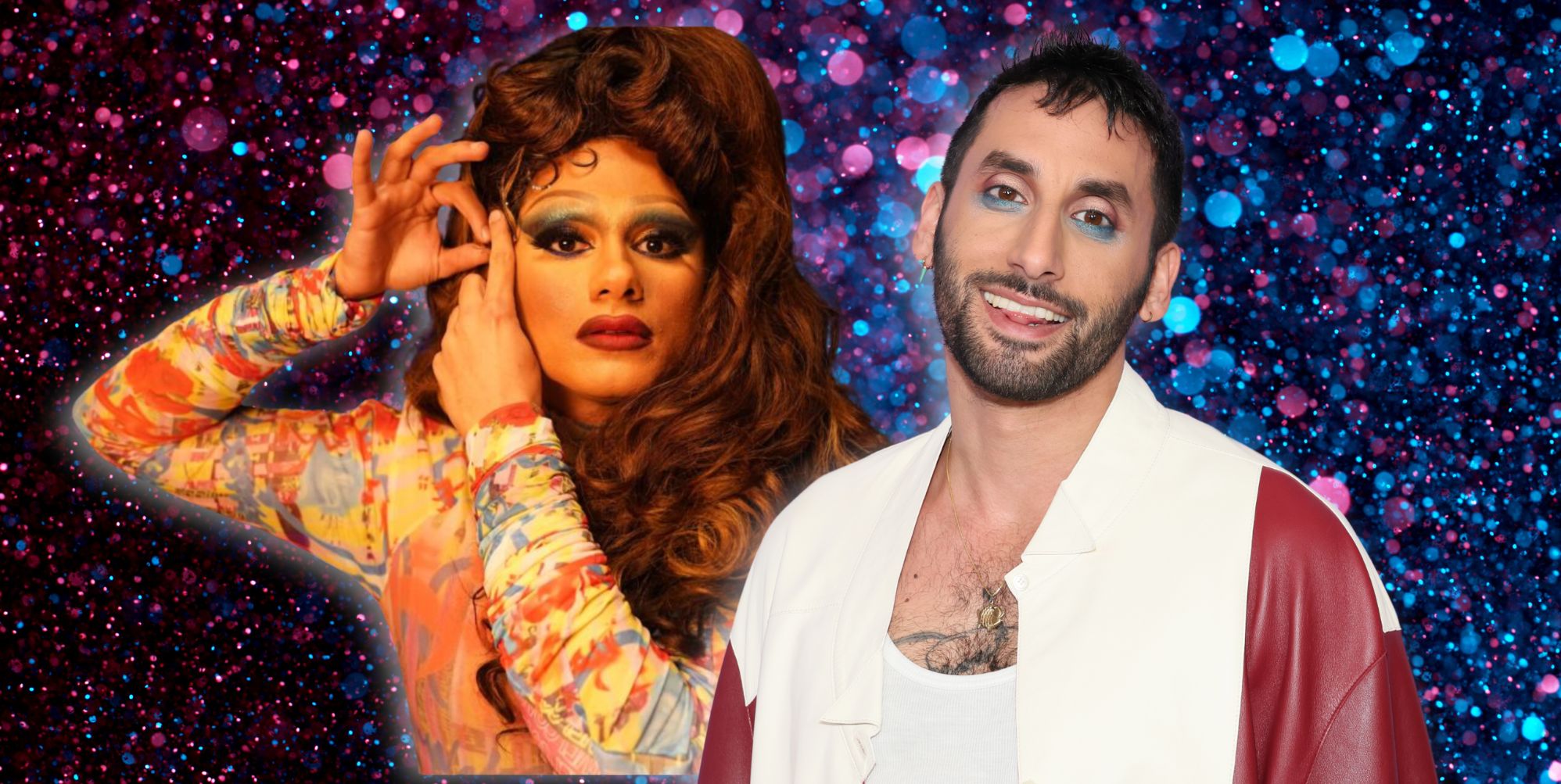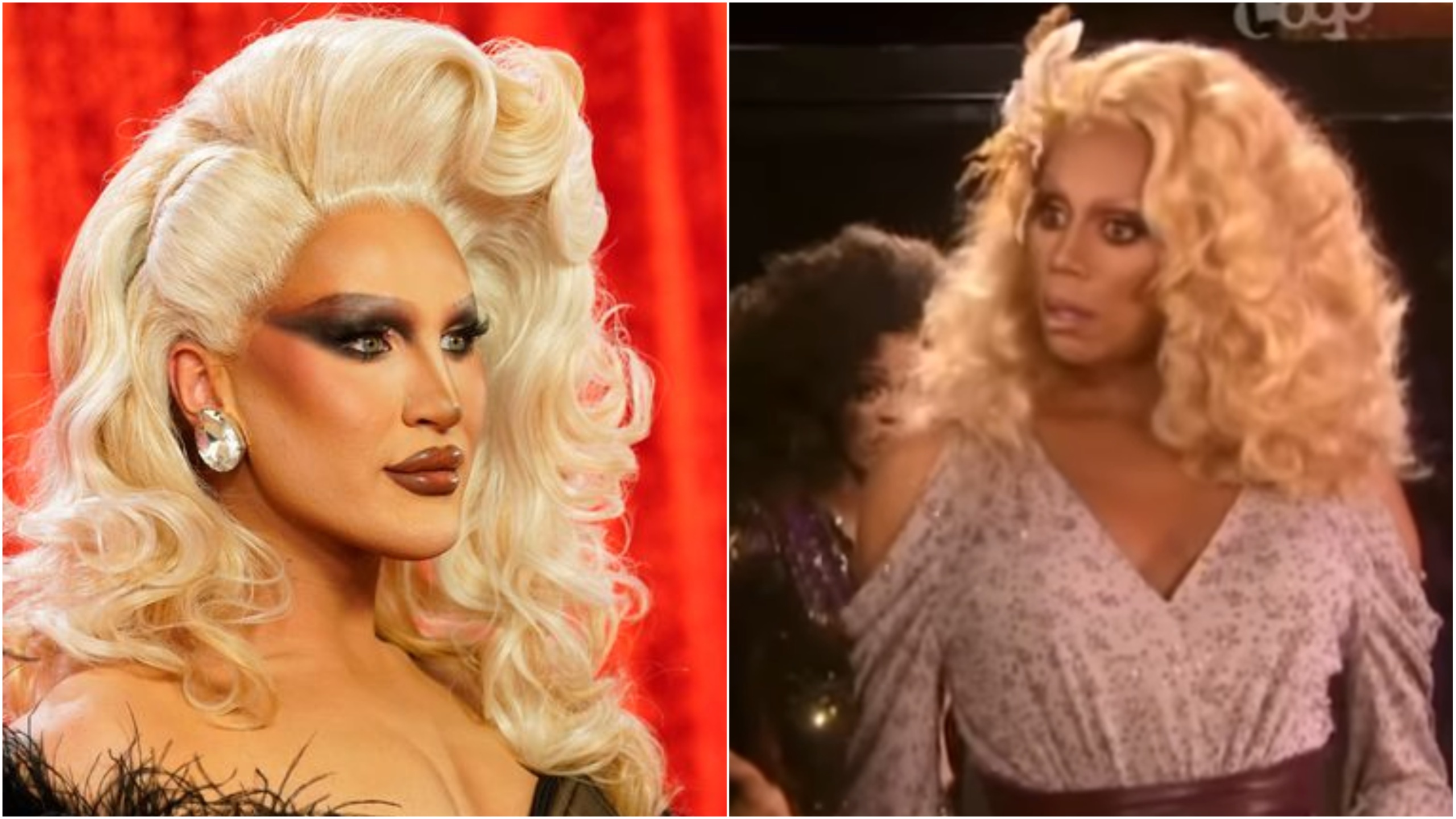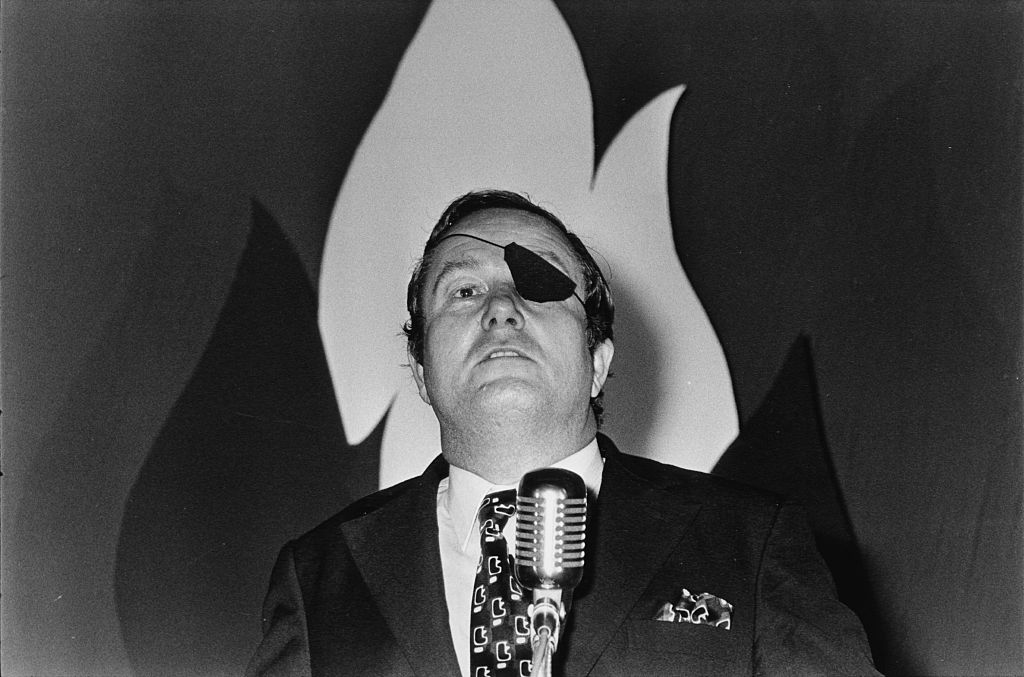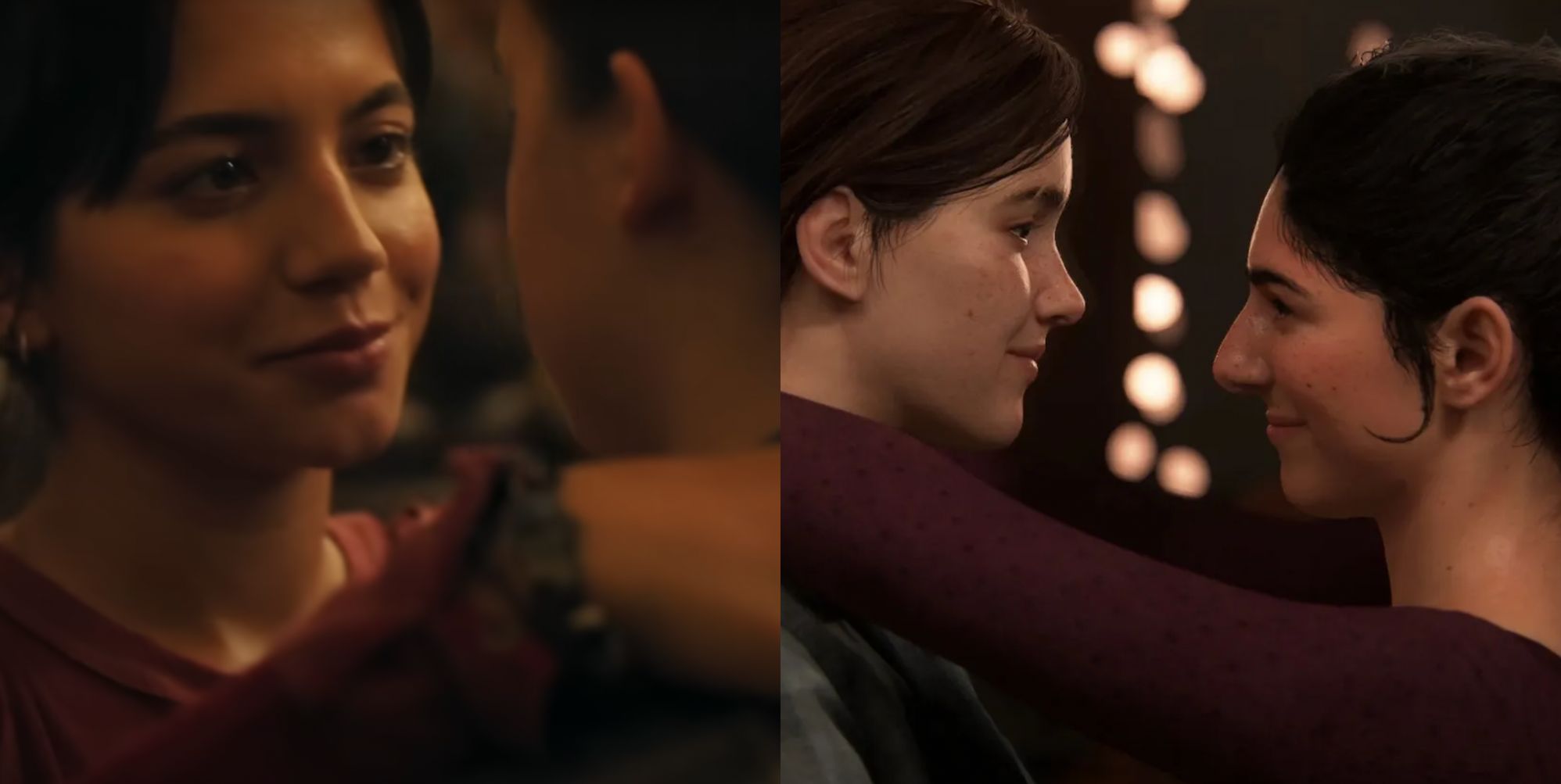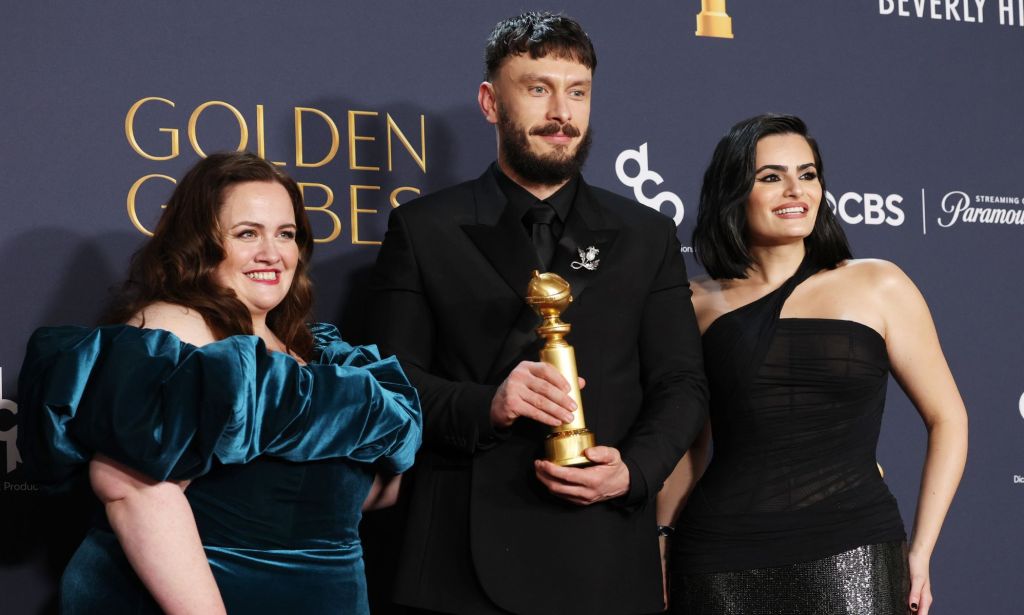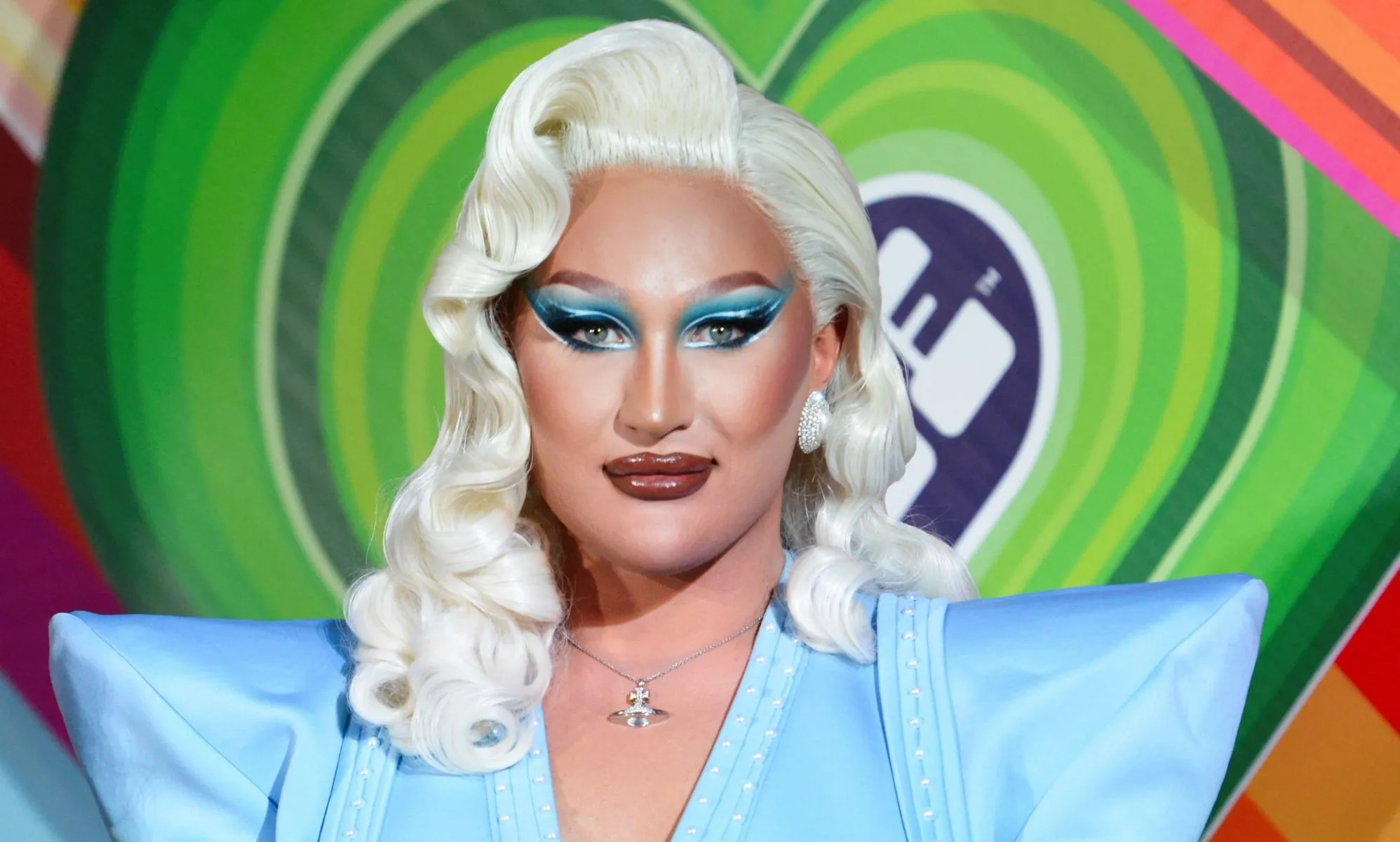Layla director Amrou Al-Kadhi on making ‘queer as hell’ love story
London is reimagined as a queer utopia in Layla, the feature-length directorial debut from occasional actor, part-time drag performer and award-winning author Amrou Al-Kadhi.
On the upper deck of a red London bus, British-Palestinian non-binary drag queen Layla, played by Bilal Hasna, and their friends perfect the finish touches to their makeup. No one blinks. In a later scene, she arrives at a run-of-the-mill restaurant in full glam. No heads turn.
Layla’s queer clan struggle financially but manage to set up home in one of the capital’s woefully overpriced and criminally gentrified neighbourhoods. In the evenings, they decompress at Feathers, an imaginary, Studio 54-eqsue club for queer people of colour. It’s a fantasy land, but it’s all intentional.
“It’s very much like portraying a kind of queer London of our dreams that doesn’t really exist right now,” Al-Kadhi tells PinkNews.
“The whole point of the film was [that] we wanted to not have any external violence… that bus scene was in there from day one because it’s like” why can’t a bunch of drag queens get ready on a bus without there being any fuss?”
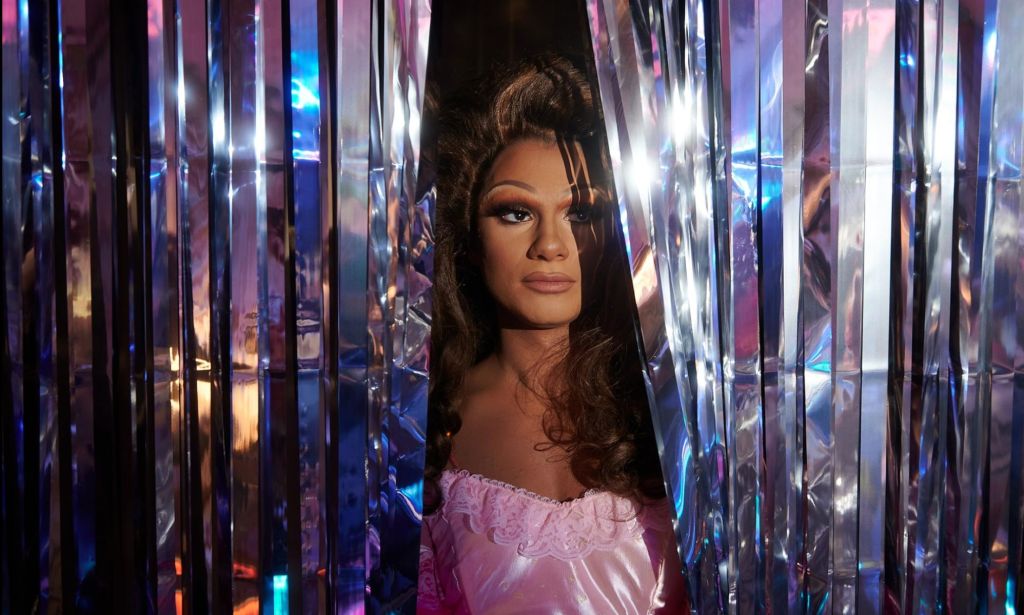
So often, queer-led stories are ironically binary. They are either hyper-focused on the joy and community that comes with being LGBTQ+, or fixated on the trauma, rejection and discrimination. As a queer viewer then, it’s hard not to grimace as Layla drags up on the bus, as the expectation of violence looms.
But in Layla, the conflict is very much internal.
The film begins with our protagonist (prodragonist?) embarking on one of drag’s most miserable feats: a corporate performance, held at a ready-meal company. After staging a protest performance against the company’s attempt to pay the queens in meal coupons, Layla catches the eye of straight-laced advertising professional, Max (Louis Greatorex).
As they attempt to intertwine their worlds, it becomes clear that they’re living in different galaxies. Layla is buoyed by their queer found family and the neon clubs in which they thrive, Max’s life revolves around the chrome of Canary Wharf and the greys of his minimalist flat.
Max appears to struggle to break free from his metaphorical straitjacket, while Layla – or Latif, as their Muslim Palestinian family knows them – struggles to reconcile all the different, seemingly incongruent elements of their life.
“That feeling of code-switching was such a key personal experience I really wanted to pursue in the film, this idea of a queer Arab drag queen who’s non-binary, constantly changing themselves in order to people-please and satisfy other people’s expectations,” says Al-Kadhi, they themself a non-binary, Arab drag performer living in London.
Layla is constantly thinking about how to be the best version of themself for the people they’re with, be that Max, friends or family, rather than the best version of themself, full stop.
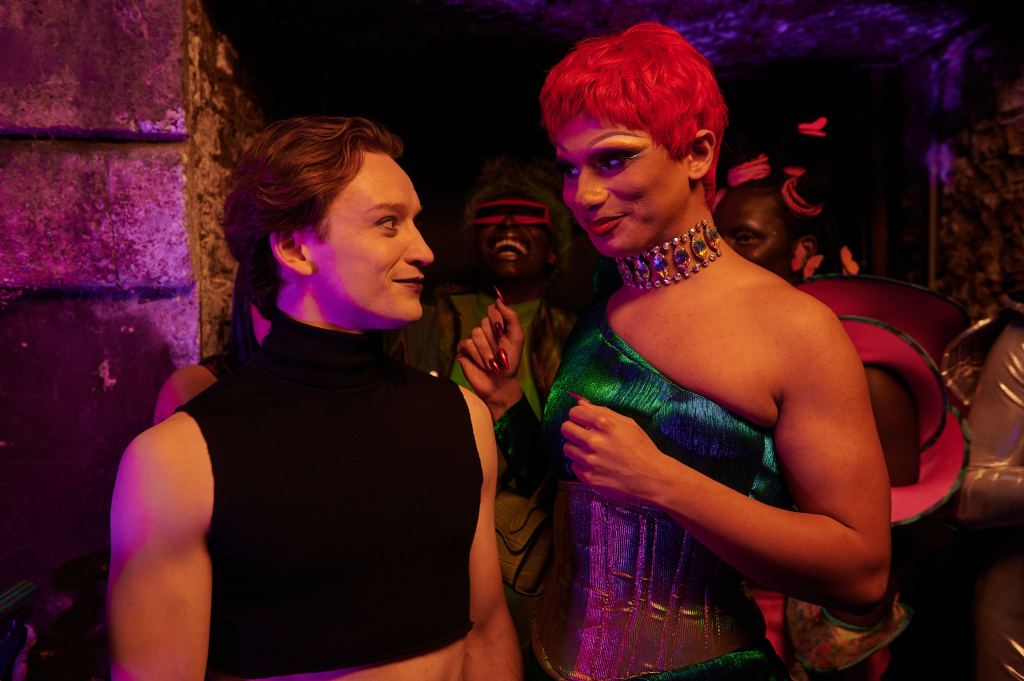
But Layla doesn’t tell us who is in the right or wrong, and, though our sympathies ultimately lie with the protagonist, it’s clear that they are as flawed as everyone else.
While Layla arguably seems most comfortable in the company of queer pals, the friends don’t seem to trust their judgment, or let them flourish on their own terms. Max tries to get Layla to open themself up to him, all while unwittingly trying to make them smaller. Layla’s family, perhaps with the exception of sister Fatima, are unwilling to see them as anything other than what they envision them to be: a straight, definitely-not-a-drag-queen son.
As for Layla, they don’t exactly help themself. As Al-Kadhi puts it, they are “sometimes the agent of their own chaos”, adding: “I think Layla, even with their friends, doesn’t give them the full picture about family or even about their lover, they lie all the time.
“So, I guess, whether it’s the lover or the friends or the family, the core thing that Layla and I think viewers need to learn is being honest about who you are, and communicating what you want and what you’re feeling to make those relationships as nourishing as possible.”
In a media landscape that has, until recent years, been starved of queer stories, certain filmmakers – particularly those who are straight and cis – struggle to place their LGBTQ+ characters. They try to overcompensate for the dearth of representation by creating people who are either made by, or broken by, their queerness. In Layla, one of Al-Kadhi’s key aims was to muddy the water of those narratives.
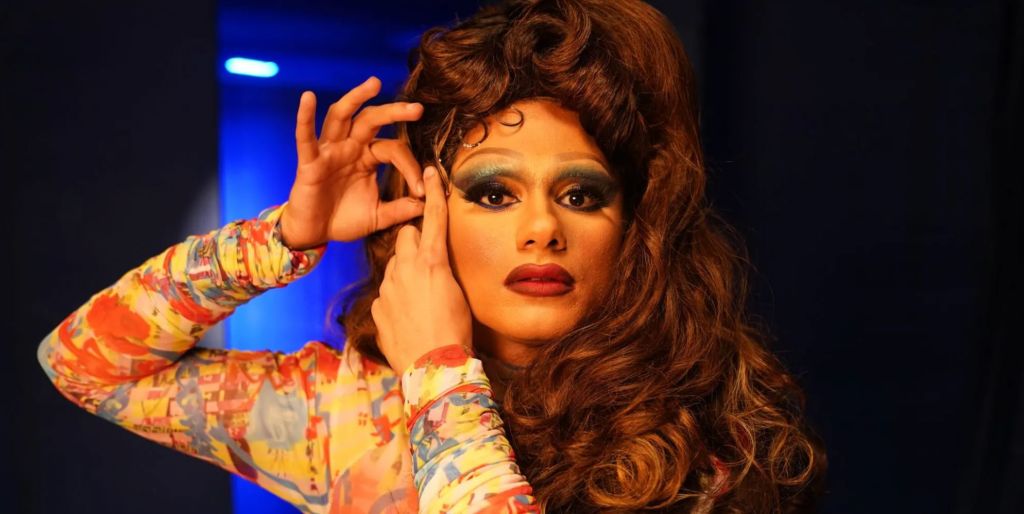
“So much of film and TV and also media representation of queer people is within the frame of victims and villains, and that robs queer characters of their humanity and their three dimensionality,” they say. “I didn’t want to make a film where Layla was a victim and Max was a sort of perpetrator. I think it’s about reflecting the kind of core humanity of queer people as people who make mistakes.”
Layla doesn’t seek to provide answers about how to live openly and authentically, although the importance of those things is clear. It’s more about the journey it takes to get there, if there ever really is an end point, and how we all stumble along the way.
It’s why the film’s ending is fairly open. “I know people have conflicting reads on it,” Al-Kadhi acknowledges. And why several different endings had to be shot. Some viewers will want a bow-tied, fairy-tale resolution, but art imitates life – and most love stories are not Disney films.
For Al-Kadhi, the main hope is that cinema-goers will give Layla the chance it deserves to succeed. “I want it to thrive at the box office obviously, and I want as many people to see it as possible,” they say.
While there are more LGBTQ+ stories than ever on our screens right now – Bottoms, Unicorns and Queer to name but a few from the past year – a story about a non-binary, British-Palestinian drag queen still seems like a hard sell. Al-Kadhi understands that some film fans will have preconceived ideas about the story being told, assuming it will be “heavy” or “traumatic” or simply too queer.
“It is queer as hell, and that’s how I wanted to make it. But I don’t think the film is sort of esoteric or inaccessible,” the director says. “I always felt with this film that the queer element is obviously in every shot, in the DNA, but it is quite universal. It’s just a love story.”
This interview was conducted in March as part of the BFI Flare Film Festival.
Layla is in cinemas in the UK and Ireland now.
Share your thoughts! Let us know in the comments below, and remember to keep the conversation respectful.

